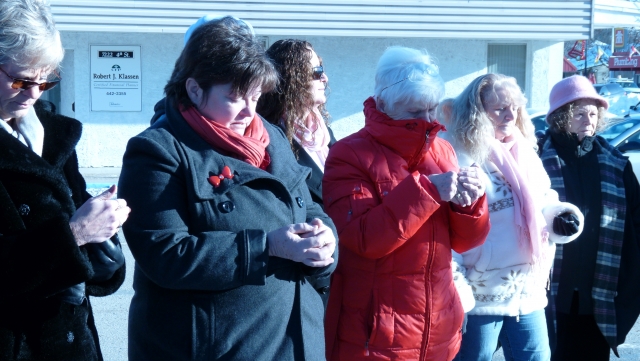Commemorating the Montreal massacre an annual event
Dec. 6 marks the 23rd anniversary of the massacre of 14 young women at l’École Polytechnique de Montréal. In 1991 the Parliament of Canada declared this date as the National Day of Remembrance and Action on Violence Against Women in Canada.
The Montreal Massacre has become symbolic of the fight to end violence against women. As well as commemorating the 14 young women of Montreal and countless other women whose lives have ended in acts of gender-based violence, December 6 represents an opportunity for Canadians to reflect on the phenomenon of violence against women in our society.
It is also an opportunity to consider the women and girls for whom violence is a daily reality. And finally, it is a day on which communities can consider concrete actions to eliminate all forms of violence against women and girls.
In keeping with the federal initiative to fly the Canadian flag at half-mast on Dec. 6, the City of Grand Forks in 2010 agreed to have the flag lowered to half-mast on this date as well.
This year, the Boundary Women’s Coalition will be holding a vigil at the City Hall cenotaph at noon on Thursday, Dec. 6. The vigil will be followed by a light lunch and the National Film Board short video “After the Montreal Massacre” at the Women’s Resource Centre.
More than 20 years after the tragic events in Montreal, violence against women continues to be a serious issue in Canada. The Boundary Women’s Coalition welcomes all those who share our concern for the safety of women to join in this event.
Violence against women and girls remains a serious problem in Canada, from overt acts of hatred, such as the Montréal Massacre, to culturally based offences and everyday acts of coercion, such as sexual harassment and domestic abuse.
Women and girls are more likely to experience certain types of serious violence and assault:
- on average, 178 females were killed every year between 1994 and 2008;
- in 2008, there were 146 female victims of homicide in Canada. Of these, 45 were victims of spousal homicide; and
- young women are particularly vulnerable. Between 1997 and 2006, young women (aged 15 to 24) were killed at a rate nearly three times higher than for all female victims of spousal homicide. During the same period, the rate of sexual assault for girls (under age 18) by family members was four times higher than for boys.
Some groups of women in Canada are particularly vulnerable to violence:
- the spousal homicide rate for Aboriginal women is more than eight times that for non-Aboriginal women;
- immigrant women may be more vulnerable to family violence due to, among other things, economic dependence, language barriers, and lack of access to resources;
- and senior women are twice as likely as senior men to be victims of violent crime perpetrated by a family member.






















